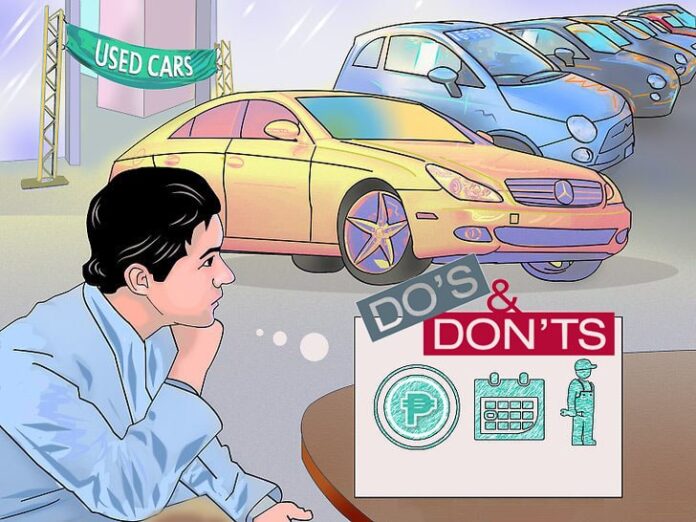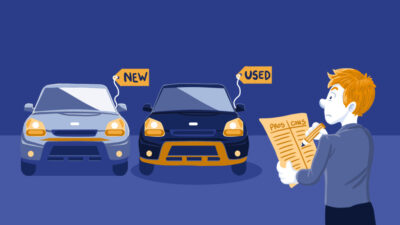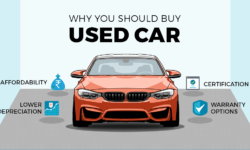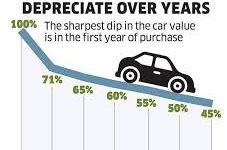


With all the economic downturn these days, buying a brand-new car doesn’t seem all that attainable for most people. Instead, many are looking to the used car market where a better bargain could be potentially struck.
However, as seemingly straightforward it might look, the process of buying a used car isn’t the same as for a brand-new one. In fact, it could be more difficult.
Unlike the latter, you cannot just blindly walk into a market, purchase a used car and expect it not to give you headaches later on the road. There are never any guarantees with used cars.
The only thing that can save you from any loss and trouble buying a used car is putting in hard work to perform detailed research and gather information about the car. And truthfully, several essential factors need to be considered while purchasing a used car. You have to take your time to do it.
Things we should consider when buying a used car
However, before we look at some essential things to consider before buying a used car, let’s look at some benefits of used and new vehicles.
Pros of Buying a Used Car

1. Best car for your money
Affordability is one of the main reasons people go for used cars. You can get a late-model used car priced at half the cost of a new one.
2. Resale value
Interestingly, you might sell the used car for the same amount you purchased in a few years. You can also benefit from obtaining solid financing options through a credit union or bank.
![]()
Cons of Buying a Used Car

1. Reliability
The biggest problem of buying a used car is reliability. You might end up needing more repairs, or it could develop problems quickly.
2. Compromising
You might also have to compromise on the car’s color, features, and options to buy one with a better history or mileage.
Pros of Buying a New Car

1. Shopping is Easier
New cars are considered perfect and complete; hence, you don’t need to evaluate the condition. Moreover, you can quickly determine how much the vehicle costs, even if you still need to negotiate.
2. More Financing Options
You might end up paying thousands of dollars less than the sticker price after you negotiate and apply incentives. Negotiate well.
3. Advanced Technology
It’s a new vehicle with new technology. You might achieve better gas mileage and have lower emissions. You might also be able to connect your technology to the car. It is all-new!
Cons of Buying a New Car

1. Depreciation
The truth is the minute you drive off; the car begins to depreciate. The most significant depreciation occurs in the first three years. More like you’re throwing away several thousand dollars.
2. Higher debt
New cars come with higher insurance costs since replacement values are higher.
Crucial Things to Consider Before Buying a Used Car.
3. The Car’s Physical Conditions
Used cars tend to look all spotless, shiny, and sometimes, like brand new. But, that’s not all for a vehicle, especially a used car. There are some hidden problems that, if you’re not thorough enough with your inspection, you might not detect. In fact, never purchase a used car based on a visual inspection alone but rather take a critical look at its history. Ensure you request a detailed report of a particular car’s history, including its past number of owners, service records, and any prior damage it had sustained.
4. Car’s Mechanical Condition
Just like checking the physical conditions of the used cars, ensuring you conduct detailed research on the vehicle. For example, engines, electronics, and many more are some of the crucial things to check.
5. Previous Owner Of The Car
Except in rare cases where the car is on a loan or lien, the vehicle seller should be able to provide you with a car title if you purchase it outright. And, especially if you are buying from an individual seller, it becomes imperative you confirm the seller is the true owner of the car. Ensuring this saves you a lot of problems that could arise after purchase. Request for any official IDs and see if it matches the name on the title or not.
6. Previous Use Of The Car
If you are not well-experienced when buying a used car, you should play it safe and go only for those cars with a good reputation.
Generally, it is way better to opt for reputable dealerships rather than private call sellers. The latter could have involved the crime in shady or criminal acts only for you to buy, and the problem starts. A reputable dealership would want more than a car of theirs being sold off. They tell you if it’s used for rentals, business, private, or even the accidents and wreckage the car has been involved in.
More so, reviews, recommendations amongst many others are all important to them; hence they ensure you get a satisfactory experience.
7. Reasons For Selling The Car
There are many reasons someone might want to sell a car, and as the buyer, you should be interested in all of them. Some of the reasons might be because it develops a particular problem quickly or it’s been involved in criminal activities. You should ask about the reasons for selling the car and see if any is a red flag for you.
Conclusion
Purchasing a used car, compared with a new one, is more demanding and requires a lot of patience and flexibility. However, the process could be more fun and exciting if you follow the advice and ask the right questions.
Ultimately, the potential value for money that a used car can bring cannot be matched by a newer one.
Like this Article? Subscribe to Our Feed!
Author: Emily Andrews
Emily Andrews is the marketing communications specialist at RecordsFinder,
an online public records search company. Communications specialist by day
and community volunteer at night, she believes in compassion and defending
defenseless.


